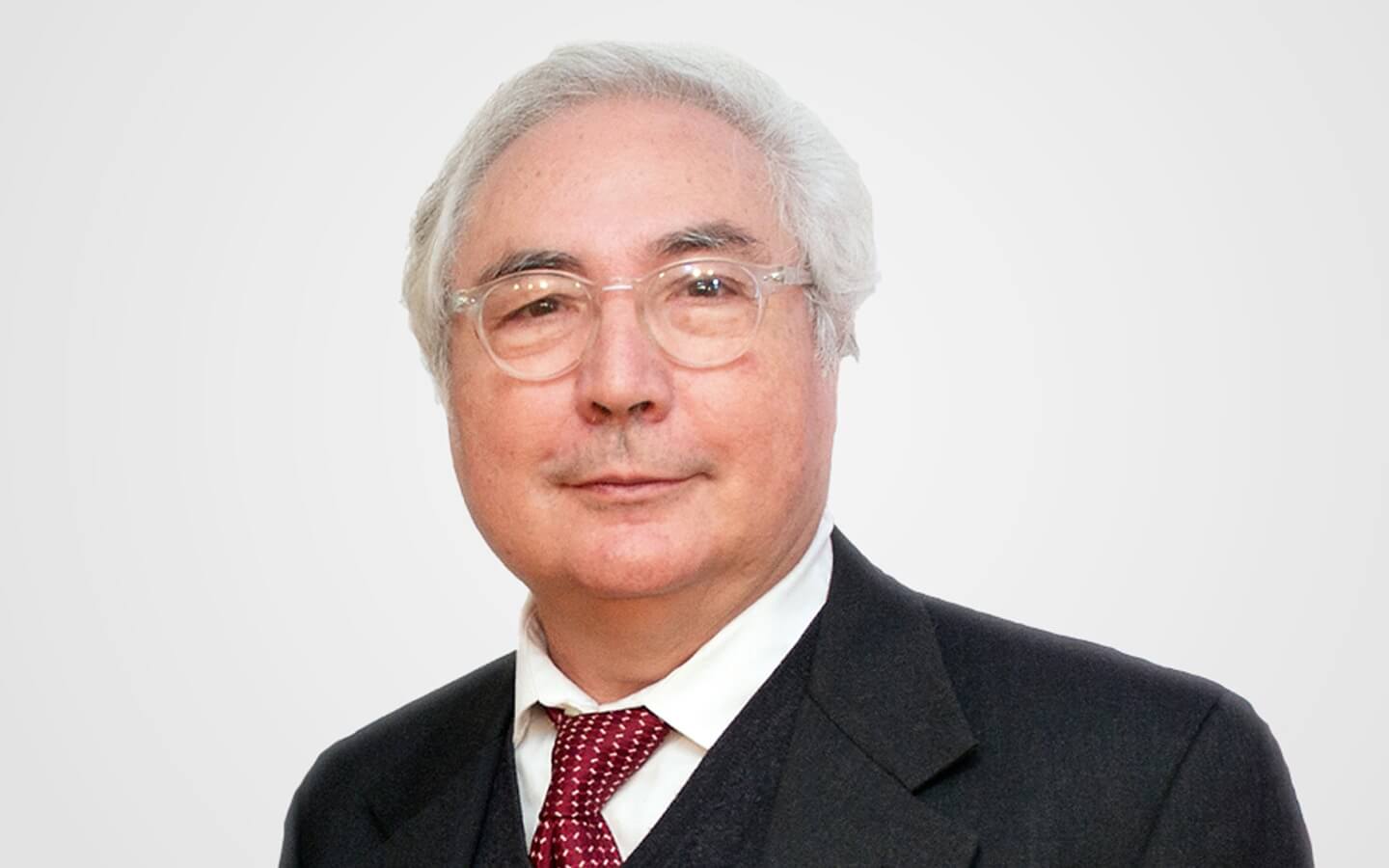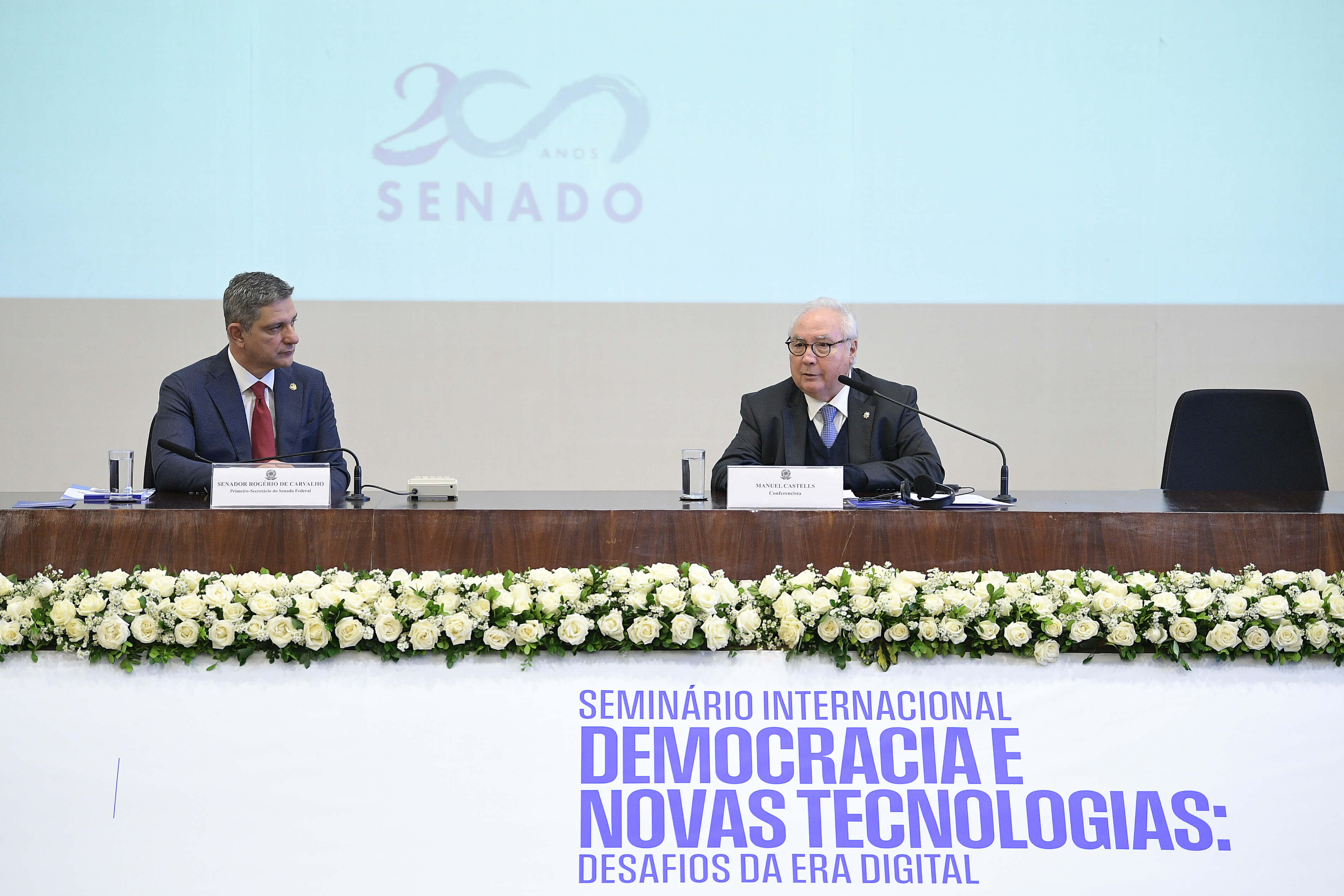Manuel Castells: "We must find ways to regulate the networks”
In an exclusive interview for the G20 Brasil website, Spanish sociologist Manuel Castells analyzed the current role of the Internet and social platforms: “The Internet is an expression of society, which is increasingly distant from the progressive ideals we support". “Social networks do not produce political polarization, but they reinforce it and amplify it extraordinarily. We must find ways to regulate social media platforms".

Spanish sociologist Manuel Castells does not demonize technology itself but criticizes the way it can be used to favor authoritarian, racist, and anti-democratic interests. “There are contradicting results for democracy, because we forget that, as human beings, we are frequently destructive: sexist, racist, xenophobic, homophobic, and in many countries, fascist. The Internet is an expression of society, which is increasingly distant from the progressive and solidary ideals we support”, he stated.
Castells, serving as a Professor of Communication Technology and Society at the University of Southern California in Los Angeles, and holding the title of Emeritus Professor of Sociology and Urban Planning at the University of California, Berkeley, authored the seminal work "The Network Society." This book is regarded as a cornerstone in Communication Theory studies and is widely recognized for pioneering research into the implications of the network society on the economy.
He was in Brasil in March to deliver a keynote lecture as part of the celebrations for the 200th anniversary of the Brazilian Federal Senate. He also taught at the Massachusetts Institute of Technology, Oxford University, and Cambridge University, in addition to his role as Minister Universities of the Spanish Government.
Back in Spain, Castells answered the questions sent by e-mail by the G20 Brasil website team, exploring issues such as artificial intelligence, political polarization, threats to democracy, and the role of the G20 countries in such context. Check out the full interview.
Almost 30 years after launching your work The Network Society, which presents an optimistic view about the new possibilities generated by the Internet to the expansion of democracy, how do you assess it today? What challenges lie ahead as we strive to reignite the libertarian utopia of the networked society?
In the 21st century, the network society fully unfolded as a social structure of our time, stemming from accelerated digitalization in all aspects, especially in communication. As I analyzed, the Internet disintermediates the mass communication monopoly held by the States and the media corporations.
While it is true that the businesses that own the communication platforms have formed an oligopoly, their business model seeks to expand communication to the 5.4 billion users of social networks. This increased society’s capacity to communicate with relative freedom, even though this communication is partially manipulated by the algorithms owned by these companies.
But there are contradicting results for democracy, because we forget that, as human beings, we are frequently destructive: sexist, racist, xenophobic, homophobic, and in many countries, fascist. The Internet is an expression of society, which is increasingly distant from the progressive and solidary ideals we support.

In your evaluation, does the intermediation of public communication through algorithms adopted by social media platforms—which drive bubbles (echo chambers) in the digital environment that amplify and radicalize political discourse— impose barriers to the notion of a networked society and the quality of democracy?
In fact, social networks do not produce political polarization; but they reinforce it and amplify it extraordinarily. This is why we must find ways to regulate the networks. However, this is hard to do, both technically and legally. The new progressive hackers will have to be creative.
What can we expect from the world’s largest economies, in the context of the G20, regarding the need for greater transparency in the use of the algorithms and the need to regulate the platforms to combat misinformation and hate speech in order to protect democracy?
I am not optimistic. The States will try to regulate them according to their own interests and the majority of these States are becoming increasingly authoritarian… This is where progressive democracies such as Brasil and Spain can play an important role in ensuring effective and conscious network regulation. But we are very far from achieving this.
Can you give us some positive references of international legislation regarding social network platforms regulation?
The European Committee has declaration documents full of good intentions but with scarce proposals to make them operational. Brasil was advancing in this direction, but the Bolsonaro storm undermined these efforts, which must be resumed.
Have the social network platforms, concentrated in the hands of only five global companies, lost their original sense foreseen by the hackers, academics, and researchers who developed them?
Absolutely. These small innovating companies have grown due to their technological power until they obtained unprecedented, oligarchic control. In his recent book ("The End of Reality") Jonathan Taplin demonstrates this with all the data. What happens is that technology can either free or oppress, depending on who operates it. The power relations continue to be a determining factor.
President Lula and all the heads of State from the G20 have brought the question of Artificial Intelligence to the center of the international debate. The concentration of knowledge in this field in the hands of only a few countries, in addition to ethical and legal aspects, are among the issues on the agenda.
During the UN General Assembly, in September this year, while serving as president of the G20, President Lula will present a political proposal regarding AI. Could you suggest a few pertinent topics to be incorporated into the presentation before the UN General Assembly?
President Lula is absolutely right, and we have great expectations regarding his proposal. Artificial Intelligence is a fundamental challenge to which we have not been able to get many answers. The Government of Spain created a Regulatory Agency for Artificial Intelligence. I preside over the international independent advisory committee, which gathers specialists in informatics, philosophers, and social scientists. But we have only just begun our work, and I do not have any concrete information to offer yet. Maybe in a few months.